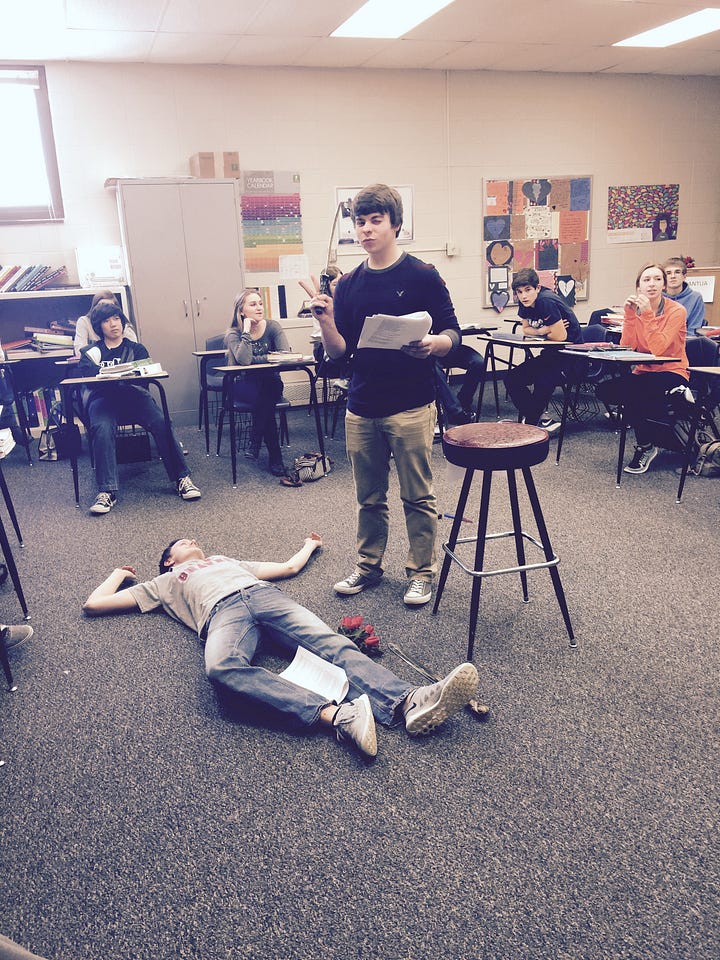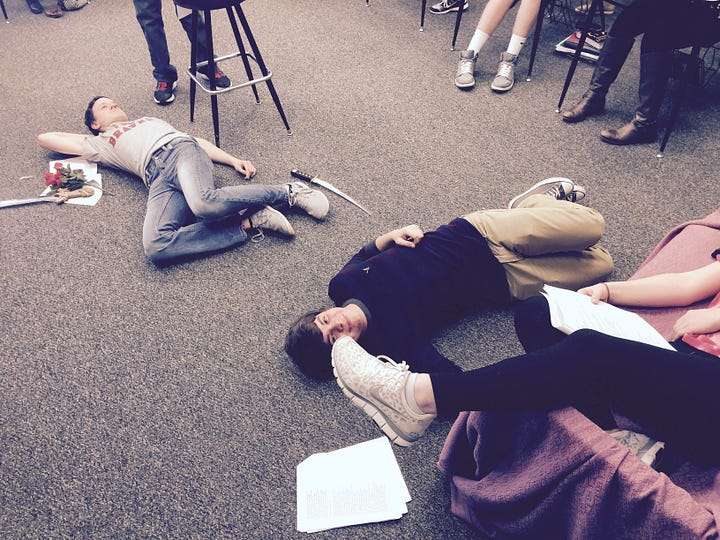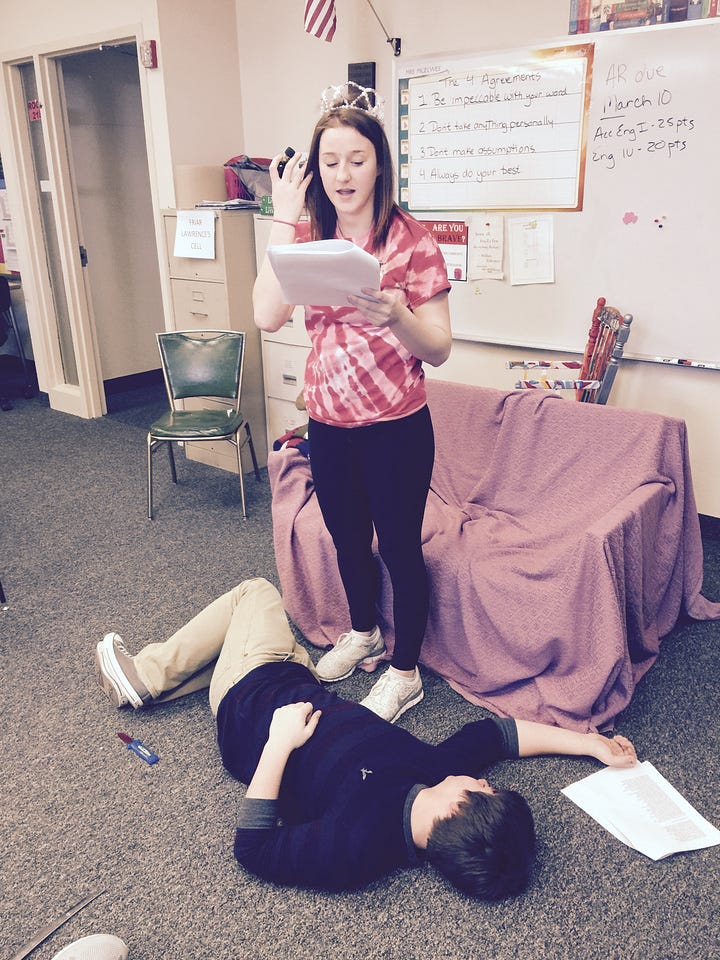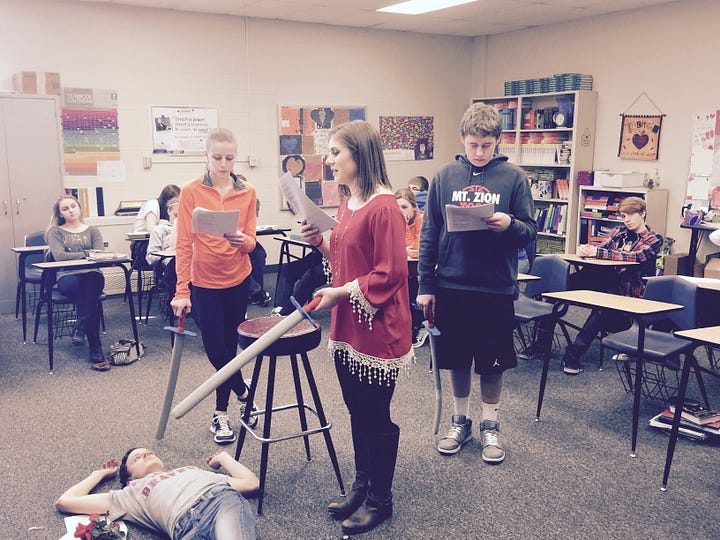#8: A Book Reflection
“A book is a garden, an orchard, a storehouse, a party, a company by the way, a counselor, a multitude of counselors.” ~ Charles Baudelaire
A book reflection is not a review. It is an examination of emotions bubbling up while reading. It is a look back on its impact. Do I underline or highlight as I read? Does it touch my heart? Why will I recommend it to others? What is it about this book that makes me want to write about it? Does the book breathe life into my soul? Or, as Charles Baudelaire so eloquently phrased, how is it a garden, an orchard, company, a multitude of counselors?
“The Puritans claimed that if you attended the theater, you would not be able to tell the difference between what was fiction and what was real…
Emilia understood the true motivation: a play might make its viewers think. And when people thought, instead of blindly following the Gospel, they escaped from your control.” ~By Any Other Name, Jodi Picoult
I spent much of my teaching career swimming in Shakespeare. Sophomores read Julius Caesar. Seniors were introduced to MacBeth and Othello. Freshmen spent time with Romeo and Juliet. I directed an edited version of A Midsummer Night’s Dream at three different schools. My advanced classes wrote sonnets. Shakespeare’s quotes dotted my classroom walls. I showed illustrations of the Globe Theater and attempted to explain iambic pentameter. Plastic swords and retractable prop knives were in closets until it was time to act out pivotal scenes.
Much has been written about William Shakespeare, but he’s still a mystery. A plethora of questions swirl around his life and work. How could he have written about the law, the court of Denmark, and detailed descriptions of cities in Italy if he had never completed his education or traveled out of England? Most playwrights in Elizabethan England collaborated with other writers, but it was said Shakespeare worked alone, with little to no rewrites. He was a full-time actor and business owner, so when did he find the time to write 38 plays, 154 sonnets, and several other poems? And, how did this man who didn’t even teach his daughters to write their own names, create such well-developed and nuanced female characters as Juliet or Portia or Desdemona? Did William Shakespeare alone write the great masterpieces, or was it a collaboration or even a business transaction?
Jodi Picoult’s new book By Any Other Name tackles these questions and others through the voices of Emilia Bassano, an Elizabethan poet; and Melina Green, an aspiring playwright. Picoult has woven both stories together to construct a fascinating account of the lives of women, four hundred years ago and today.
I have a few takeaways from By Any Other Name.
It is okay to think about other possibilities from what you’ve been taught. You can question everything. It is not treasonous or blasphemous to wonder if what you’ve been fed through the years is true. You can think. You can change. You can evolve. It’s also a sign of growth if you admit you have learned and changed your thought patterns. That is maturity. This goes for religion, politics, or even the behemoth myth of Shakespeare.
What struck me as I read By Any Other Name was that no matter how far women have come since the 1500s, there are forces at work trying to push us back. A smart, serious, qualified woman is running for president, yet a 78 year old addled, racist, misogynistic white man (and convicted felon, rapist, liar, fascist, and insurrectionist) has almost half the country thinking he’s a better candidate. Personal decisions are being snatched away. The words slut and whore are said out loud and appear in social media comments. Girls are silenced for their talent and ideas. Dreams and aspirations are vilified. A small group of so-called conservatives are proclaiming to a vast country of women how they should behave, think, and live their lives. How is this progress?
The works with Shakespeare’s name on them still speak to my heart despite questions about their author(s). Quotes sing. Plots thicken. Characters dance. It doesn’t matter who wrote them. What is important is their longevity and how the stories are still relevant to our humanity hundreds of years later. Brutus’ betrayal. Romeo and Juliet’s rash decisions. Othello’s jealousy. Hamlet’s pondering. Lady MacBeth’s machinations. Oberon’s plotting. Love. Lust. Prejudice. Hatred. Grudges. Friendship. Politics. Laughter. Heartbreak. All are there within the verses of these comedies, histories, and tragedies. I will never tire of their beauty.
A few of my favorite (and timely) lines:
Julius Caesar
“Cowards die many times before their deaths; The valiant never taste of death but once.” ~ Julius Caesar
“The evil that men do lives after them; The good is oft interred with their bones.” ~ Mark Antony
“Not that I loved Caesar less, but that I love Rome more.”~ Brutus
Othello
“Men in rage strike those that wish them best.” ~Iago
Hamlet
“Doubt thou the stars are fire; Doubt that the sun doth move; Doubt truth to be a liar; But Never doubt I love.” ~ Hamlet
“Listen to many, speak to a few.” Polonius
MacBeth
“By the pricking of my thumbs, something wicked this way comes.” ~ The Witches
“False face must hide what the false heart doth know.” ~ MacBeth
“Fair is foul, and foul is fair, hover through fog and filthy air.” ~ The Witches
A Midsummer Night’s Dream
“Lord, what fools these mortals be!” ~ Puck
Romeo and Juliet
“These violent delights have violent ends.” ~Friar Lawrence
“What’s Montague? It is nor hand, nor foot, nor arm, nor face, nor any other part belonging to a man. O, be some other name!” ~Juliet
“O teach me how I should forget to think.” ~ Romeo
“I defy you, stars.” ~Romeo
“For never was a story of more woe than this of Juliet and her Romeo.” ~Prince of Verona




Act V of Romeo and Juliet reenacted by one of my advanced freshmen English classes back in the winter of 2015, my final year of teaching. Grief. Tears. Laughter. So much fun. All of these kids are grown now. Sigh….






I love all the quotes; So appropriate still today.
I have this book on my shelf. I'll be reading it next! Thanks for the reflection.